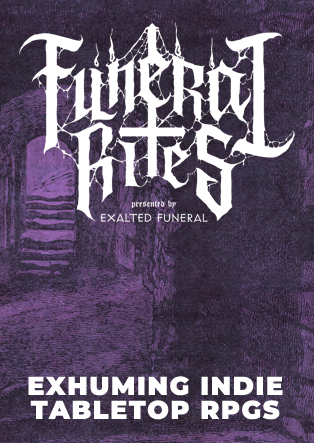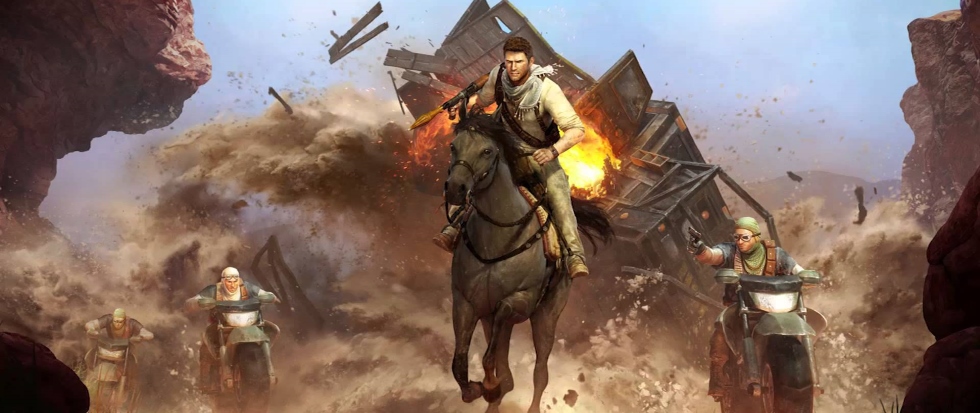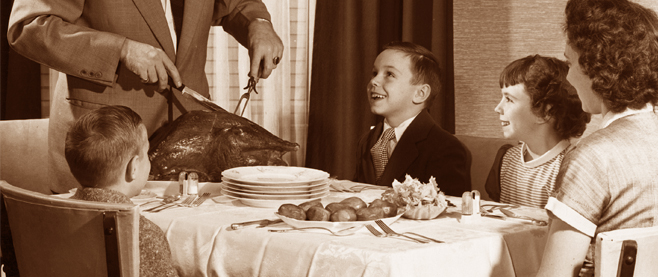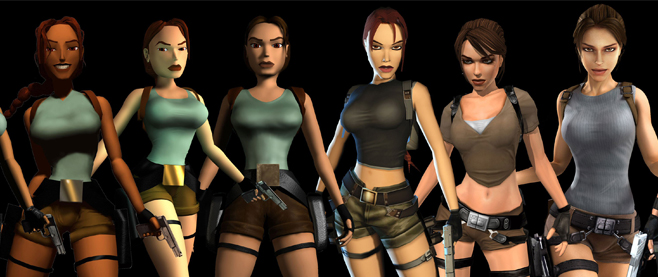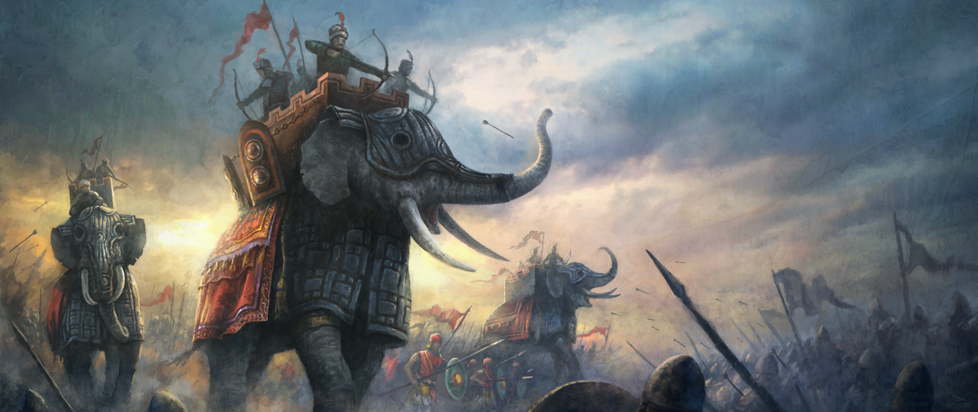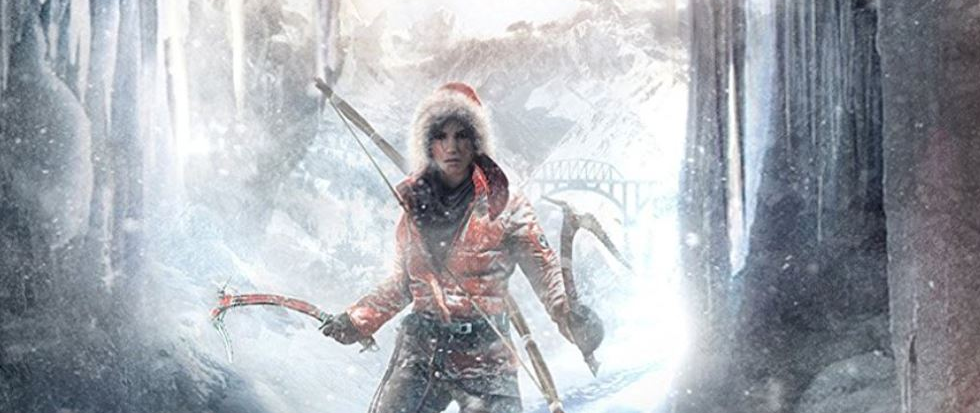
Tomb Raider and the Problematic Messiah
Religion in games is something you rarely see. It’s even stranger to imagine it utilized as a key aspect of any AAA project. You see some indie titles like Moon Hunters, but for something like Rise of the Tomb Raider, a bold Microsoft exclusive sequel to the well received 2013 reboot, to embed religion in itself is remarkable. Praiseworthy. To its credit, Rise gets far more right than most developers have; however, amid dozens of great details, it flubs one of its core aspects – its messiah figure. This is problematic, especially since Crystal Dynamics uses this character as the crux of their entire discussion in Rise.
Regardless, I want to start with the positives, because I am grateful for the effort put forth here by Rise’s developers, and wholeheartedly encourage more studios follow Crystal Dynamics’ footsteps in recognizing how religion is so culturally ingrained and that it drives many of us. This is even the basis for one of the game’s strongest subthemes when addressing religion.
Rise of the Tomb Raider starts a few years after the events on the island of Yamatai. Lara Croft has come face to face with genuinely supernatural, metaphysical beings, and shot one of them in the face with a pistol. Understandably, as a woman of science, Lara wants to study this discovery and pursue it. Lara stares up at monolithic mountainsides during the opening hour, demonstrating how far she’s willing to go to appreciate and understand what the human soul really is, if it does exist. Meanwhile, everyone that she knows is either calling her crazy or saying it’s too dangerous. The press are slandering her as being crazier than even her father, who insisted there had to be some sort of afterlife (and died trying to prove it).
This is all very relevant, as our current society paradoxically both prides itself on its secularism and its religious fervor. They’re two viewpoints that continually clash with vitriol and aggression, dividing many on the topic. By having Lara stand as an agnostic viewpoint moving towards spirituality, we witness the backlash one can receive for taking any sort of position on this subject.
There’s an early cutscene of her searching in the dark while tabloids strewn about. detail her being publicly defamed does a brilliant if brief job of approximating how people typically respond to religion in modern discourse. Lara’s sanity is immediately called into question the second she says there’s credible evidence that the supernatural exists.
It doesn’t matter what Lara (or we, the player) experienced or how rational she is, there will always be someone insisting those experiences were false or attribute what occurred to another answer. Your agency and perspective are dismissed outright; any sort of spiritual belief is called out as either childish nonsense or a sign of ignorance. This alone leads to things taking an unpleasant turn, but the real gut punch? That comes from those closest.
When one arrives to a significant change in life – such as finding a religious belief – not everyone is going to understand or will care to listen to why they believe. If it’s not immediately compatible, they’ll be cut out or dismissed on the matter entirely. Others will fight it. It can be one of the most unpleasant experiences, no matter how true to oneself this change can be. Bearing yourself like that can be one of the most terrifying experiences, as even those you trust most and hold dear can turn on you.

Lara’s step-mother Ana and best friend Jonah, right up until near the game’s conclusion, as are sources of doubt, and that’s very important. Ana rejects her step-daughter’s theories and pleads with her to come home. Later, she’s antagonistic and clearly skeptical of everything except extending her own life, but more on that in a moment.
On the other hand, Jonah is terrified of the supernatural now. In the 2013 reboot, he’s presented as very spiritual (and possibly neo-pagan if not spiritualist agnostic), and is consistently supportive of Lara. After everything that went down on Yamatai, his own open-minded faith has been shaken and he’s recoiling. It’s only after a brief encounter with an assassin (we’ll get to that in a second) that Jonah is convinced Lara is at least onto something.
It’s not long into Lara’s investigations that we learn she’s going toe to toe with what is obviously a paramilitary branch of the Catholic church, dubbed Trinity (a name with all the subtlety of a hammer to the toe). Their agent sent to hunt Lara down is none other than Konstantin. Despite the name suggesting a cliche PMC baddie, Crystal Dynamics takes the time to explore the dangers of blind, unthinking dogmatic belief. Konstantin rejects all blame, claiming that it’s what God “wants” and that He is merely “testing” him. That’s some pretty heavy stuff, and by comparison to other religious motivated antagonists (looking at you, Outlast 2), is handled with considerably more care.
Konstantin is a terrible man, and you get the feeling he would be regardless of his beliefs, but they help motivate and focus how he directs his unbridled brutality. It’s not any specific agenda other than devotion to a presumed higher calling. He’s a monster who thinks himself truly righteous, and even acknowledges his brutality and asks God for forgiveness. That’s huge, particularly to see it portrayed with authenticity. A religious person can identify and understand some of Konstantin’s thinking, and recognize how warped he’s become by Trinity and, as we later learn, by his sister, Lara’s stepmother Ana.
Ana is, by all intents and purposes, secular to a T. She doesn’t care about if the Divine Source is truly holy or not, she just wants to live. She’ll put herself in peril if it means surviving. She comes to represent the political edge that, especially in this day and age, pervades so many churches and leads to curtailing of what’s preached. She and Trinity use Konstantin as a weapon for their own devices, manipulating his faith and the faith of his comrades into a convenient excuse to wipe his conscience clean and ensure he stays on mission. There’s even a side story about another psychotic underling in the expeditionary force, and how his murderous tendencies are justified so he can be better put to use by Trinity.
This callous mistreatment of someone desperate for meaning in his life almost makes Konstantin pitiable – almost. The game even lets you choose whether or not to shoot him at the end of the game, when he’s trapped beneath the wreckage of a room. The context for why you shoot him or leave him to burn alive, when considering all that’s said above, has a lot more unspoken weight.
Unfortunately, outside of Konstantin and that brief side-story, the rest of Trinity lacks this nuance. From your first real encounter with them during a brief stop at a tomb in Syria, to the game’s main open world of Siberia, they are just generic, faceless bad guys who you can feel fine about shooting and stabbing to your heart’s content. The emphasis on gunplay and constant action notably undercuts a survival-adventure game that would have benefitted far more from being quieter and more introspective.
The emphasis on action not only takes away time from the game’s various themes, but it forces the mysterious pseudo-Protestant/Islamic faction that Lara aligns with to become Hunger Games cast offs. Even Jacob, an obvious Jesus allegory, throws knives and shoots bad guys as often as he patiently guides Lara towards the truth at the heart of the mystery. It generates some serious dissonance for an otherwise noble and, dare I say it, damn near close interpretation of a Christ-like figure. Except Jacob is also where things break down on a far more critical level.
So many granular notes and aspects of religion are touched upon perfectly, but the game’s Christ figure is basically the opposite. That isn’t to say Jacob is the devil or anything – it’s that he’s selfish and his death that brought about his apparent resurrection occurred as he fled an assassination attempt. For those who don’t know, Jesus Christ sacrificing Himself to clean away our sins is kind of a big part of Christianity. Now, by the end of the game, Jacob does sacrifice himself for a more noble purpose, but it’s only after a lot of people have died and suffered. While that’s a nice gesture, he’s been lying to people for literally centuries all for his own purposes. Sure, he tries to be wise and kind, but this fundamental misstep completely taints the allegory.

What helped me understand this choice was when I had the chance to speak with one of the game’s developers, Cameron Suey, who I sincerely thank again for taking the time to give me some insight into the writing team’s side of things. He explained that they approached the subject with an open mind, and that they aimed to offend no one. Their central lens of exploring religion wasn’t so much faith, belief, or grappling with the unknown but instead… immortality. When I asked him to elaborate, he answered thusly:
“Initially, the reason for choosing immortality as the focal thread of religious storyline was to provide continuity with Lara’s experience on Yamatai in the first game. She had her first experience with something that couldn’t materially be explained, and it made sense for her to pursue the thread of survival beyond death, or myths of immortal figures (At one point in development we leaned much more heavily on the Russian myth of Koschei the Deathless)
Additionally, as we fleshed out the story of her relationship to her father and his death, the notion of his pursuit of immortality following his wife’s death gave a bittersweet edge to her own journey. It allows us to ask questions about why our loved ones have to die and what that means to lose them forever.” — Cameron Suey
The problem with this approach is, immortality is not the point of most religions. While Crystal Dynamics relies heavily on European beliefs for Rise, the idea of how an afterlife works varies wildly within just that region alone. This is a particularly confusing misstep when they captured perfectly how misplaced faith can harm us, yet don’t really portray why someone would hold beliefs in a healthy manner. With the Remnant, we’re shown that they’re good people and that they have good intentions, but what happens with Jacob completely undercuts that and the message the game has been building until that point. It’s like writing a thesis, then changing the argument in the last three paragraphs.
Looking at how the Divine Source is just a magic gem hidden underground in a ruined city, you can certainly still see the Koschei myths’ inspiration nestled in there. Honestly, those myths fit better for Jacob who, for all his positive points, is an inherently selfish and short-sighted individual. He’s a kindly fool, not a messiah. This feeds into the theme of being careful with where you place your beliefs, but also means we never get an answer as to where you should. This gets even more muddied when you really look at how the Divine Source works and see Jacob performing literal miracles.
Rise relies heavily on the “oh, we can explain that away” mentality of Scooby Doo for most of these elements, but we actually see souls flying out of and into the Divine Source. It essentially absorbs your essence when you gaze upon it directly, based on the brief time Ana spends trying to use it. Human bodies touched by it can burn away then reform within a day, based on text logs. Plus, Queen Nariko of Yamatai was very clearly supernatural in origin in the last game. So without getting into the ramifications of Jacob having possibly been alive around the same time as Jesus (Christianity is only given vague references), it’s kind of eyebrow-raising that the more antagonistic supernatural stuff is legit supernatural, but a potential positive influence is nothing more than a kindly fool who made some mistakes.
I normally prefer to keep these posts as objective as possible, but I do have to just say, as a Protestant Christian: the idea of a Tomb Raider game where even a grain of Christendom is actually treated as real in that universe is exciting. Not frightening, no – exciting. We’ve seen Lara go up against Atlanteans and the Egyptian god Set; why not have Lara find out Heaven and Hell exist? That there is some divine entity watching over her and perhaps is even guiding her to counteract a tainting of its religion by Trinity?
It would fit the anti-dogma message without basically shrugging at the notion of a Judeo-Christian God existing in the setting. It’s not like the subject matter is horrendously taboo – otherwise Witchblade, Hellraiser, and Constantine would not exist. In fact, Witchblade’s a pretty decent example of taking Catholic beliefs and applying them in a manner not unlike Greek Mythology. With Rise of the Tomb Raider we could have had a vastly superior answer to The Da Vinci Code. I could go for that, and I know others that would too.
There’s even a more unique and untouched prospect with Jacob and his people. He’s a prophet preaching Abrahamic ideals but isn’t necessarily Christian or Jewish. The potential for an Islamic leaning story is there, however controversial that might be. The team clearly has an appreciation for religious culture and tried to get a lot of the ideas right – if they just nailed down Jacob (oh my gosh, that is a really terrible, unintended religious pun) to a specific angle that fit the particular culture and religion they were going for, it could work.
However, by not having Jacob’s sacrifice be for the betterment of others, he’s at best, an AU fanfic of if Jesus abandoned His followers right before Judas would betray Him. It completely undercuts the meaning there. Immortality is not why Jesus was important – it’s why He dies and rises from the grave that matters. The living forever in Paradise bit is just a nice thing you’re supposed to look forward to. The core point of Christianity is to “Do unto others, as you would yourself,” and… Jacob doesn’t do that. He manipulates, lies, and hides while he lets others die for him; which is highlighted by the sheer number of gunfights that cut through the introspective moments like an airhorn in the middle of an opera house.
I understand what people expect from a Tomb Raider game, but take away the shootouts and Rise would be far more focused on Lara coming to grips with her father’s own beliefs, discovering the truth to explain what she’s seen, and witnessing the dangers of faith without reason, logic, or morality. Much like Bioshock Infinite before it, while the gameplay is certainly satisfying, it undercuts rather than reinforces the journey. This could have been incorporated into the narrative and addressed, or cut from the experience with a greater focus on surviving the wilderness, but instead is just accepted as a given, grenade launchers and all.

All this aside, it’s not that I’m upset at Rise of the Tomb Raider. Talking to Cameron and witnessing such loving care demonstrates that Crystal Dynamics worked very hard to do their utmost. I’m not saying they shouldn’t touch on this theme again. I do think that leaning on immortality as a core way of exploring things is considerably limiting. At best, immortality is a reward long after this world has passed on. Belief should never be about, to quote The Good Place, “moral dessert”. If you’re following a religion for just a reward, then you’re not really faithful.
Faith, belief – these are things inherent to not only at the core of religion, but are how we function. As Terry Pratchett’s Hogfather puts it, without belief, concepts like justice and hope cease to exist. Belief is how we make sense of the world, regardless of our individual perspectives. That’s a fundamentally human thing, and far more tangible than some end goal that could exist without any religious foundations.
Lara doesn’t need to start keeping a devotional diary, but she’s discovering herself and what she believes. That’s a personal journey can take years with dozens of unexpected turns as you refine yourself over time. It’s something that’s worth exploring, and in some cases can feel far more harrowing than raiding tombs, but begs for a refocused perspective.
Even if we, the player, disagree – it’s better to disagree than to have nothing to say; which Rise ends up doing by its conclusion. Watching Rise awkwardly sidestep what it could have been was one of the most heartbreaking moments for me back when it released. Plus, the ancient astronaut statue hinting at a Chariots of Fire situation… Please, don’t take things in that direction. We’ve already seen it with Assassin’s Creed and religious geeks and nerds are beyond tired of that trope.
I applaud Crystal Dynamics for what they’ve done here. They succeeded far better than a number of developers in the past. As a religious gamer who rarely sees such earnest efforts, I’m relieved to know the developers cared about this aspect in their game. I won’t pretend I’m not worried about how the game hints at the finale being about Lara taking down Trinity, but that could also work, like how I described with her finding faith while pushing back against dogma. That would be awesome. I suppose we’ll know in a year or so.
